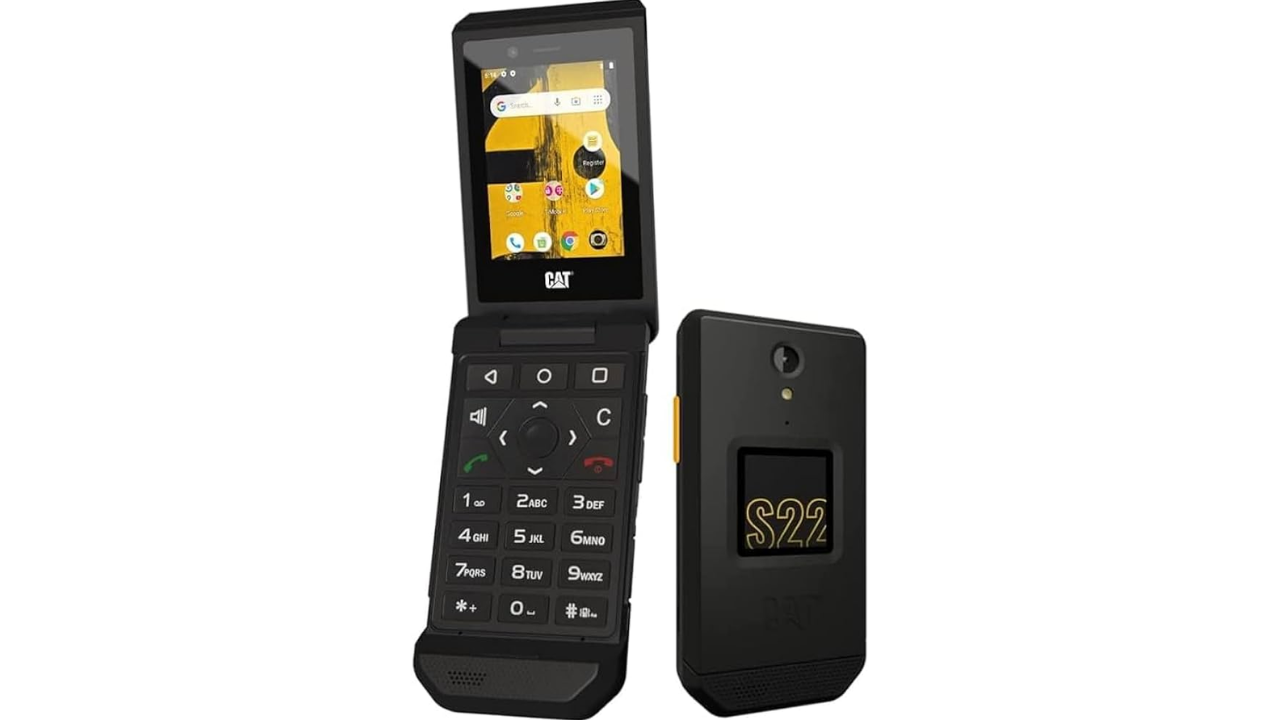Making the Choice: Downgrading to a Dumbphone in 2024
Two months ago, I wrote an essay about my hypnopompic dreams of cell phone notifications. I’d been missing a friend and had near-daily dreams each...
5 min read
 Taylor Zantingh
:
Aug 7, 2024 12:03:11 PM
Taylor Zantingh
:
Aug 7, 2024 12:03:11 PM
.png)
Nearly every morning, I have hypnopompic dreams about phone notifications.
This morning, I dreamt that an old friend I’ve been missing for many months sent me a text overnight. I rolled over and pawed around in the dark for my phone. By the time I felt its cool shape in my palm, I had already realized it was just a dream. But still, I ripped the charging cable from the socket and brought the screen to my face so that the distance between us—me and it—was less than five inches. I’m severely nearsighted and my glasses sat directly beside me on my bedside table. But I didn’t care. I wanted to check my notifications.
For many people, over seventy per cent according to recent data, this story is familiar. While it might bring comfort to some to know they’re not alone, for the majority of my life, I’ve felt that the widespread acceptance of cell phone addiction was a looming, inescapable dystopia. Since so many of us are addicted to our phones, we’ve begun to internalize the symptoms and circumstances of living in active addiction as inherent. Then, rather than trying to change ourselves and our behaviours, we create a reality that accommodates.
In his book, The Matter With Things: Our Brains, Our Delusions and the Unmaking of the World, British psychiatrist Iain McGilchrist talks about how we create our reality with our attention.
“The world we experience — which is the only one we can know — is affected by the kind of attention we pay to it,” he says. “The choice we make of how we dispose our consciousness is the ultimate creative act: it renders the world what it is.”
So, what does it mean about my world that the first thing I attend to every morning is my phone?
I only vaguely remember what the world was like before widespread cell phone use. I got my first phone on my fourteenth birthday. A black and red Samsung SCH-U410T. It was 2008. I loved horses and emo music and a skateboarder in ninth grade named Will. My home had dial-up internet, which I used at night when my parents were asleep to chat with strangers on www.vampirefreaks.com, a social networking website for goth, alternative, and punk adults. I was in grade eight.
Since then, I often feel as though I’ve been in a constant state of resistance. Fighting for my attention, my time, and my sense of self.
I know it’s ridiculous. People have told me it is. I should just stop using the phone, if I hate it so much. I know I should. But I don’t. I can’t. What if my friend finally decides to text me?
McGilchrist argued that paying attention to something is “a moral act” with consequences that impact the world.
“How you attend to [the world] changes what it is you find there. What you find then governs the kind of attention you will think it appropriate to pay in the future. And so it is that the world you recognise (which will not be exactly the same as my world) is “firmed up” — and brought into being.”
It’s not revolutionary to admit that my cell phone addiction is a spiritual malady that simulates human connection while simultaneously making it increasingly difficult for me to authentically connect with others. There’s plenty of discourse about how no one wants to text first. You can read all about it on Twitter and Substack.
I think, on some level, we all know that the community we experience online is hollow. A simulacrum of connection. We also understand that when we pay attention to our phones, the reality we are in is designed, owned, and managed by companies that want to influence our behaviour for their own best interest.
Still, we scroll.
When I was in tenth grade, my boyfriend got an iPod touch. He spent hours every day scrolling on the couch while I played Skyrim beside him. His dad, a short man with a Burt Reynolds moustache, clowned on us regularly. At the time, I didn’t fully understand what made scrolling on the internet different from other forms of entertainment. Watching movies, reading a book, playing a video game; they were all just ways to pass the time.
Then, one day, I started a game of Scrabble on the iPod with a stranger in Germany. Now, I’m writing this article.
William Burroughs, an influential American Beat writer, spent his life creating experimental writing about addiction. His writing employed a cut-up technique that fragmented the timelines of his stories to depict the temporal dimension of addiction.
That summer, I began using a smartphone daily. I have absolutely no memory of what I did on the phone, though I’m sure Facebook, Sudoku Lite, and Plants vs. Zombies were all involved. But I know I didn’t only use my phone. So why can’t I remember other things about that time of my life?
The data has existed for years now. Excessive cell phone use has been found to have a strong correlation with various social, cognitive, academic, mental health, and interpersonal dysfunctions. Just the presence of a cell phone has been shown to impair cognitive function and negatively impact learning and memory.
Still, I scroll.
Normally, when I write an essay, I like to weave together trustworthy data, insights from great writers and artists, and real-world stories from my own life. This balance of logos, ethos, and pathos helps me create something impactful.
But in this piece, I’m struggling to remember unique and interesting anecdotes that contain enough tangible details to liven up the prose. Because I don’t, and never have, collected memories while using my phone.
Most of the memories I have regarding cell phone addiction revolve around arguments with partners and friends about my problematic use. Checking it at inappropriate times. Neglecting the world in front of me.
Now, I am 29. I work behind a screen. I manage other people’s social media accounts. Sometimes I go 24 hours without real human interaction. Of course, I get excited when I see a text from a friend.
In 2015, during a long, slow shift in the paint department at Home Depot, I calculated how much time I would spend on my phone if I didn’t work hard to cut back on my cell phone usage.
Back then, my daily screen time hovered around four hours a day. I was 21 and the average life expectancy for Canadian women was 84 years. This meant that, if I didn’t change my behaviour, I would spend approximately 92,000 hours on my phone in my lifetime. 92,000 hours is the equivalent of 10 years.
In The Principles of Psychology, William James writes: “My experience is what I agree to attend to. Only those items which I notice shape my mind - without selective interest, experience is an utter chaos.”
Despite my decade-and-a-half-long struggle to lower my screen time, my daily average is now just over eight hours.
That will amount to over 18 years by the time I’m 84.
I’ve tried everything. I was the last of my friends to get a smartphone or an Instagram account. I’ve tried paid lockout apps, iPhone’s Screen Time feature, and locking my phone in a literal safe. I’ve deleted apps. Deleted accounts. I’ve changed my display to grayscale and my language to French. I’ve read “How to Break Up With Your Phone” by Catherine Price. And yes. I’ve tried mindfulness.
Even now, as I write this, my phone is locked using an app called Flora. I know it’s locked, that I cannot get in, and that I don’t even want to be on my phone right now. But I keep tapping the screen to check my notifications. Six times in the last hour, according to Flora.
So why not just give up trying? It doesn’t seem to be working anyway, all the restraint. But I don’t want to live 18 years of my life behind a screen. I want to do things I’ll remember. And I want to remember the things I do.
At the end of Don Hertzfeldt’s film, It’s Such a Beautiful Day, his protagonist muses about the inevitable point in a person's life when they start thinking more often about the past than the future. When they stop having things to look forward to and can only reflect on their memories.
I wonder where that point is. If, when I get there, I’ll have spent 18 years of my life pawing around in the dark.
My high school boyfriend’s dad probably remembers more about the things I did in the summer of 2010 than I do. He probably remembers my body, slumped over on his couch for hours at a time, responding on cue to gentle sounds, lights, and colours designed to hold my attention until the next ad. I wish I had a quote from him to put here, but I can’t remember anything he said to me.
I imagine he’d probably make some snarky remark about all the books and movies I quoted in this essay. And he’d be right—I didn’t quote any apps. #embarassing.

Two months ago, I wrote an essay about my hypnopompic dreams of cell phone notifications. I’d been missing a friend and had near-daily dreams each...
.png)
If you are in the business world, you have undoubtedly heard of Simon Sinek. Even if you have never read his books, you have probably watched one of...
For those of us whose writing was a lifelong ambition, we probably all pictured it the same way: cloistered away at 2am, frantically scrawling a...